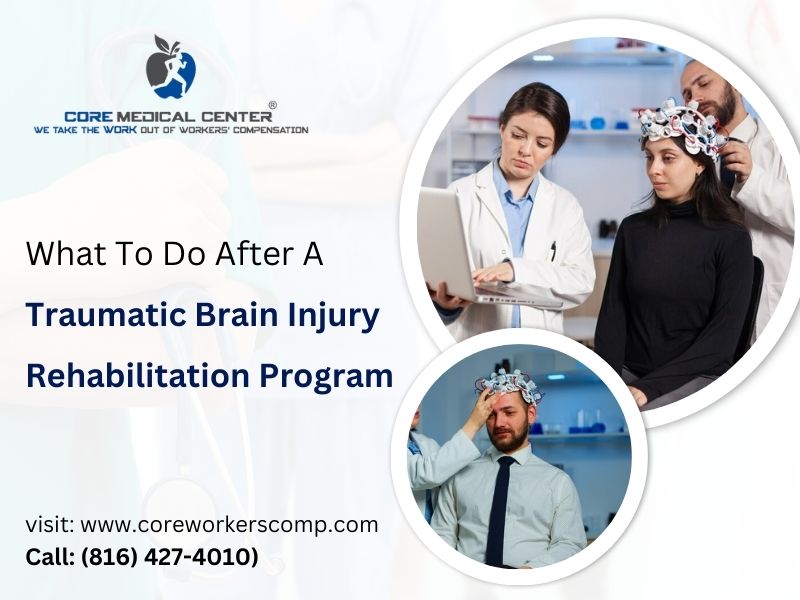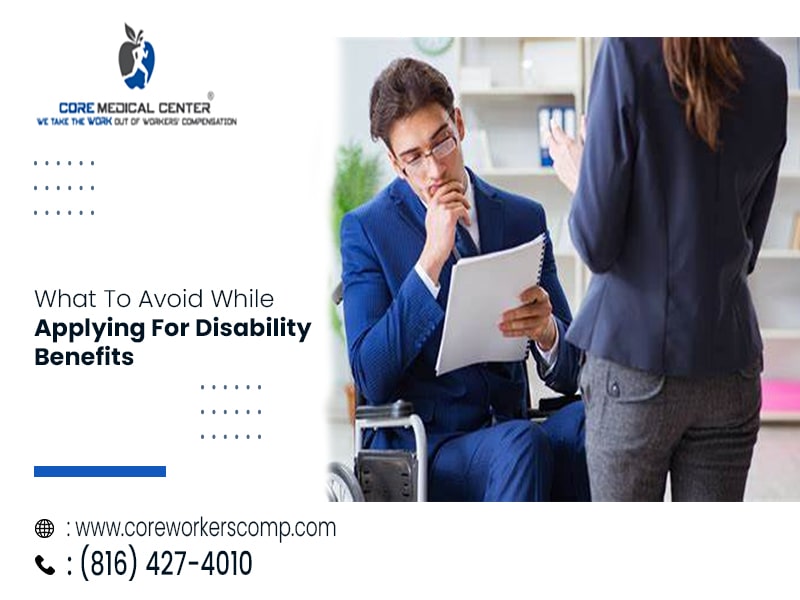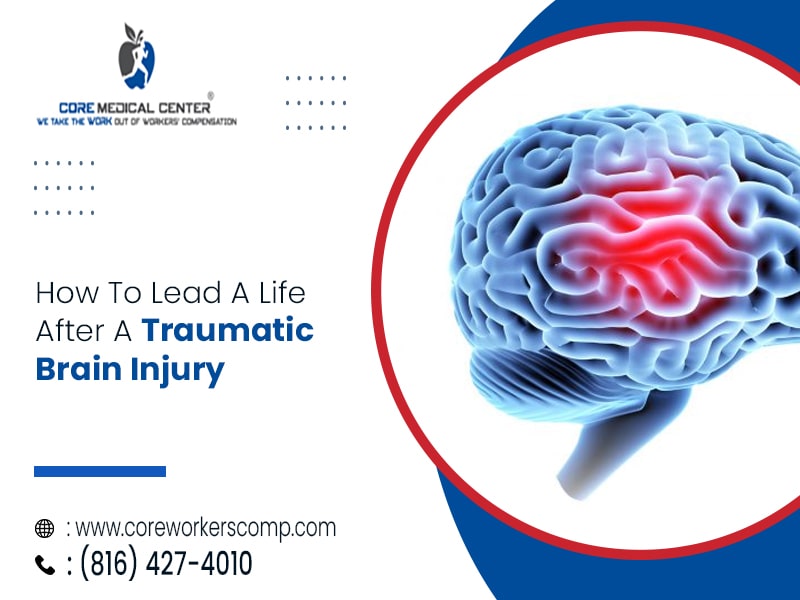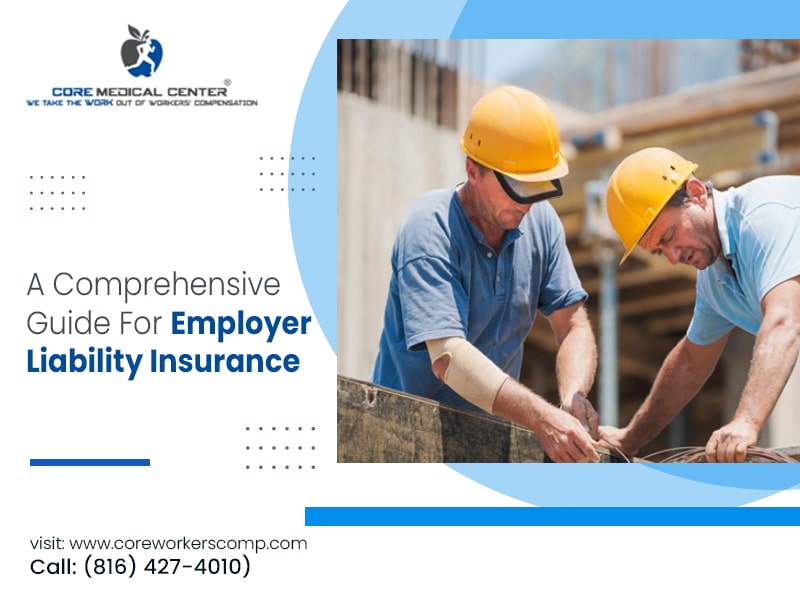Completing a Traumatic Brain Injury Rehabilitation program is a major milestone toward resuming your life. However, recovery extends well beyond discharge. Optimizing your ongoing progress requires proactive planning and support to ease the transition back into regular routines. In this blog, Core Medical Center, a premier medical facility specializing in worker’s compensation and work-related injuries in the USA, will guide you through the right next steps after exiting formal TBI rehab.
Before jumping into the discussion, if you are looking for the best Traumatic Brain Injury Rehabilitation program or Psychosocial Support for your brain injuries, reach out to Core Medical Center, USA, today. Our comprehensive program will maximize your physical recovery after a traumatic brain injury. Contact us online or call our Blue Springs, Missouri, offices today to learn more.
Now, let’s have a look at the detailed discussion:-
- Take Time to Adjust
- Check In With Your Support Network
- Continue Therapies
- Explore Community Resources
- Address Return-to-Work Considerations
- Monitor Symptoms
- Pace Yourself
- Maintain Healthy Habits
Take Time to Adjust:
Even if you’ve technically completed therapeutic goals, expect an adjustment period re-integrating at home and work. Fatigue continues to hamper the stamina needed to handle former schedules consistently. During this transitional phase, maintain self-care priorities like rests between activities. Temper expectations around immediately jumping back into demanding lifestyles, as pacing remains vital.
Check In With Your Support Network:
Provide updates to family, friends, and colleagues about your discharge from formal rehab. Detail your ongoing needs and limitations so they understand it’s the start of your journey back rather than the finish line. Clear communication sets the stage for realistic support. After getting a Traumatic Brain Injury Rehabilitation program, stay connected with your support circle for encouragement.
Continue Therapies:
Outpatient services reinforce rehab gains and promote continual progress. PT, OT, speech, counseling, and other therapies prove essential for managing persistent deficits. Ensure referrals are in place for community-based care. Identify affordable options like university clinics if insurance barriers exist. Maintaining therapeutic intensity prevents backsliding.
Explore Community Resources:
Local associations and nonprofits offer TBI assistance, spanning peer mentoring, cognitive coaching, caregiver breaks, transportation assistance, job placement, and leisure/wellness programs tailored to TBI survivors. These affordable resources provide structure as you regain independence. Consult your discharge team for referrals.
Address Return-to-Work Considerations:
If employed pre-injury, meet with HR/supervisors to discuss workplace accommodations, transitional part-time plans, or modified duty options, enabling a gradual ramp-up as your recovery continues. Be proactive in requesting specific support. Begin sooner than later, given process delays. Vocational counseling aids in the assessment of job readiness and goal-setting.
Monitor Symptoms:
Lingering issues like headaches, dizziness, and memory problems still require vigilant tracking even after your Traumatic Brain Injury Rehabilitation program. Keep dated written records of symptoms, triggers, and successful coping methods for managing residuals. Bring these status updates to all medical appointments. Don’t downplay concerns, assuming issues will resolve spontaneously over time.
Pace Yourself:
Avoid over-packing schedules in the weeks and months post-discharge as you still heal. Build in frequent breaks to prevent symptom flares. Recognize your brain and body haven’t fully rebounded from intense rehab demands. Sustain pacing techniques you learned for home, work, and community activities. Gradually increase productive hours.
Maintain Healthy Habits:
Rehabilitation progress depends on adhering to sleep, nutrition, and wellness strategies. Follow prescribed diets, hydration needs, and sleep hygiene principles. Incorporate stress relief and brain-stimulating leisure pursuits into weekly routines. Journaling and meditation build self-awareness around over-exertion risks – a key factor in lasting TBI gains.
Final Words
In closing, take it slowly, acknowledge evolving abilities, and trust that support will sustain your trajectory across the months ahead. Life after TBI rehab completion will only get richer with the right guidance and personal commitment. Contact Core Medical Center, USA, for an effective Traumatic Brain Injury Rehabilitation program or Psychosocial Support today.






Recent Comments